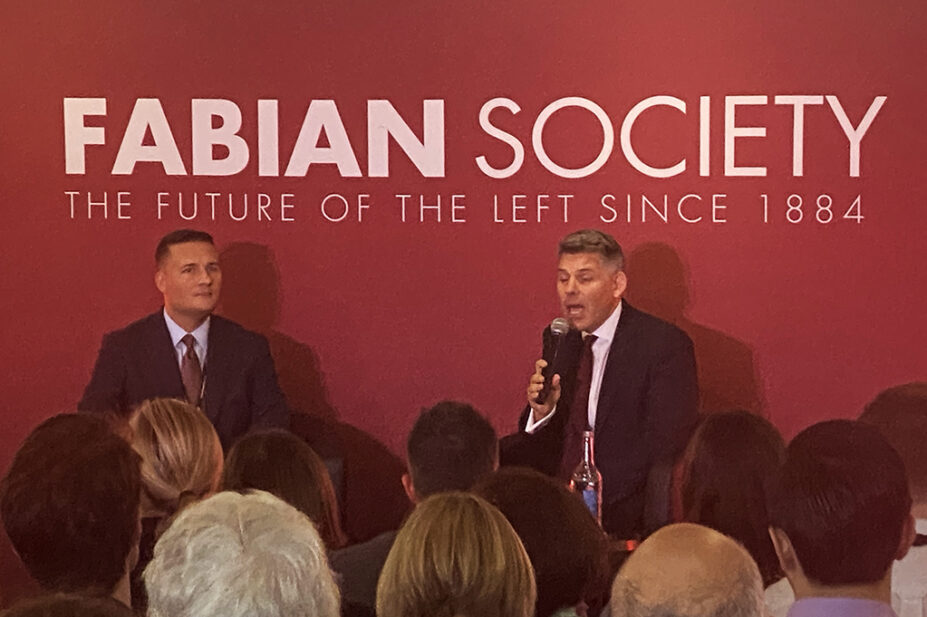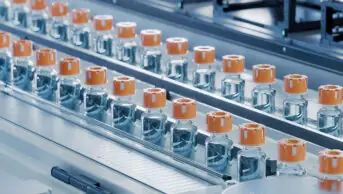
Sophie Willis / The Pharmaceutical Journal
Wes Streeting, secretary of state for health and social care, has criticised the National Pharmacy Association’s (NPA’s) “threats of collective action”, saying that it will “harm patients” and “put pressure” on other parts of the healthcare system.
Speaking at a session on the ‘Future for health and social care’ at the Labour Party Annual Conference 2024 in Liverpool, Merseyside, on 22 September 2024, Streeting said there had been an “unhelpful degree of sabre rattling” from the organisation.
Responding to a question on what his message would be for general practice staff having to turn patients away owing to a lack of resources, Streeting said: “I think there is such overwhelming consensus about the need to shift the centre of gravity out of hospitals into community.
“We’ve committed to grow primary care as a proportion of the NHS’s spending … we’re serious about rebuilding general practice and primary care more generally. We’ve got to make sure that you’ve got the tools to do the job.
“I think there’s been now from the British Medical Association’s GP Committee and the NPA an unhelpful degree of sabre rattling and threats of collective action.
“I kind of understood that when we were 14 years into a Conservative government, because people hadn’t seen change — in fact, they’d only seen change for the worse and things getting harder not easier, both in terms of thousands of fewer GPs now than there were in 2015, pharmacies closing left, right and centre, even though the last government was talking about Pharmacy First — so I totally get the scale of the challenge.”
However, Streeting added that he “could not understand from a tactical point of view … why weeks into a brand new government [the organisations] would come forward and say ‘actually we didn’t do this with [the Conservative government], but a few weeks in we’re now going to threaten collective action unless you do the things that we’ve all agreed need to be done’”.
The NPA — which represents 6,000 community pharmacies in England, Wales and Northern Ireland — announced on 19 September 2024 that it would send out a formal ballot to members “within days” to ask if they will “reduce services and put NHS leaders on notice that they will cut their hours to contract minimums and withdraw free deliveries or free medicine dispensing packs if the financial situation for pharmacies does not improve”.
The ballot will be open for responses for six weeks, with the potential for action to take place before Christmas.
The NPA is not a trade union, so the vote will only be advisory.
‘Work-to-rule’ action by GPs officially began on 1 August 2024, following a ballot by the British Medical Association, in which 98% of members voted for action “to protect general practice”.
Continuing his comments at the Labour Party conference, Streeting said: “The fact is collective action, whether by GPs or pharmacists, will harm patients and make the relationship with patients worse.
“It will also put pressure on other parts of the system and people should be clearsighted about that – that those kinds of tactics only make things harder to turn around, not easier; make things harder for patients, not better; and make things harder for their colleagues in the NHS.”
Asking GPs and pharmacists to work with the government, Streeting said: “I think we will see real improvement for patients, most importantly, but also for GPs, for pharmacies and for the system as a whole, but we can only do this if we’re a team and we can’t do this if we’re at loggerheads.
“The offer of working together in partnership is there; I really hope people take the opportunity and grasp our hand, and actually I find talking to GPs and pharmacists – that’s exactly where people are, people are up for change, they’re up for the challenge and they want to see us deliver the things that we said we will,” he added.
In response to Streeting’s comments, Paul Rees, chief executive of the NPA, said: “We’re pleased Wes has seen the anger and frustration of pharmacies and we’d be delighted to talk to him about stabilising the network and transforming what pharmacies can offer to deliver real benefits to communities.
“Pharmacies are being driven into the ground by a decade of cuts that means the NHS doesn’t even properly cover the cost of medicines.”


